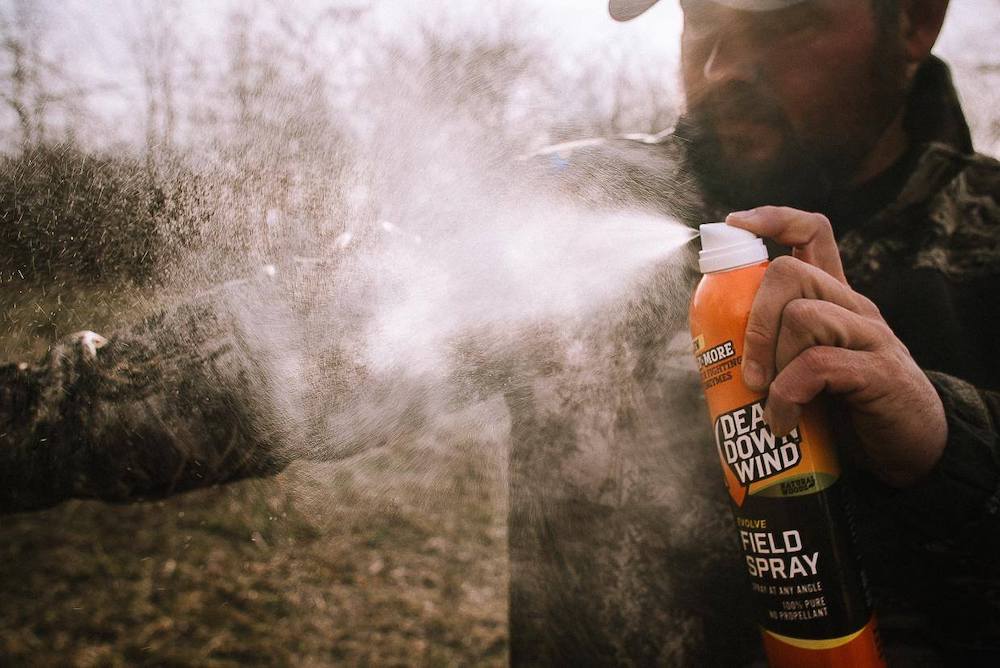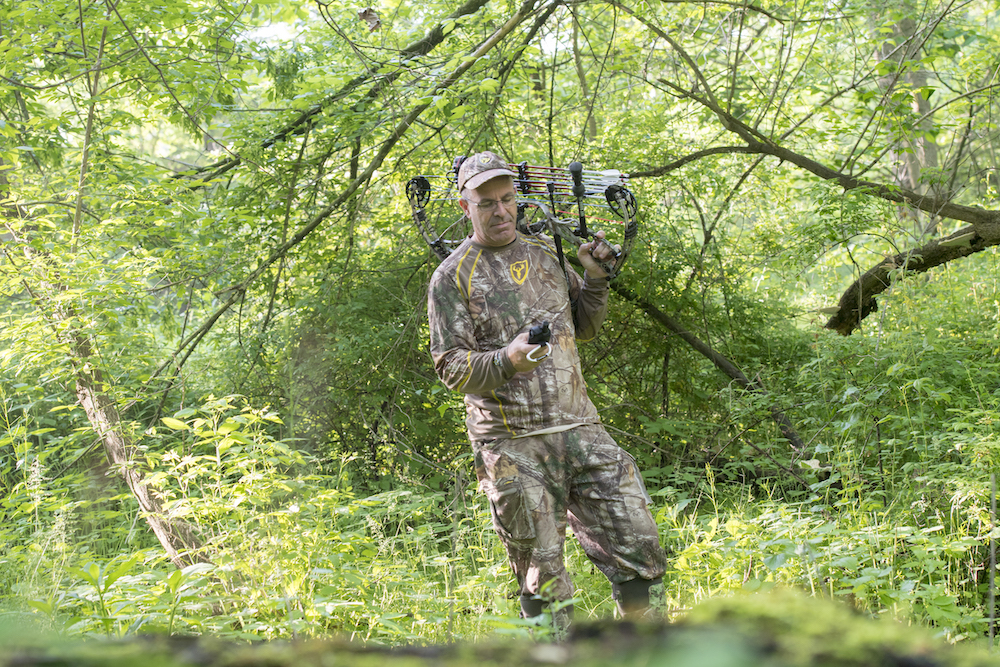Imagine the smell of cinnamon rolls fresh out of the oven. Your mouth probably started watering, and your body probably relaxed as you thought about a peaceful morning around the breakfast table. Now imagine sitting in your living room watching TV and suddenly smelling smoke. What’s your reaction to that? How about “Yikes?! Is my house on fire?”
Humans can detect many scents and odors. These smells might elicit fond memories or alarming responses. Most game animals react to scents the same way. They’re unfazed by scents they encounter in their everyday wanderings, like acorns, pine trees, stagnant ponds and other animals. However, they’re usually alarmed by unnatural odors like gasoline, coffee, dogs and human scents. If you’re interested in learning the science behind a deer’s sense of smell, North American Whitetail wrote a good article on the topic.
As a bowhunter, it’s your goal to get as close to a game animal as possible so you can make an ethical, well-placed shot. Unfortunately, the odors you carry into the woods with you, whether human, food-based, synthetic or otherwise, can notify game animals of your presence long before you even know they’re there. That’s why hunters must play the wind and minimize their scent impact by using good scent elimination practices.

We spoke to Amanda Popp, marketing director for Arcus Hunting, to learn the importance of wind and how hunters can use it to their advantage, as well as what scent control is and what bowhunters can do to be scent-free. Arcus Hunting includes brands like Tink’s Hunting Products, Trophy Taker, Ramcat Broadheads, Rack One Whitetail Supplements and Dead Down Wind, which produces laundry, hygiene and field products that are scientifically designed to eliminate odor signatures using enzyme technology.
“Both scent control and playing the wind are crucial in successfully harvesting an animal,” Popp said. “At the end of the day, you want to see and harvest an animal. If you’re only playing the wind and the wind shifts as it’s very likely to do, your scent is now being carried in a different direction. If you play the wind and practice scent control, you’re controlling the variables you can, which dramatically increases your probability of success.”
The wind can be your best friend or your worst enemy. Check the weather forecast before heading afield to identify the wind speed and direction.
Wind speeds of more than 10 mph can be dangerous for bowhunting as tree canopies shake and dead limbs tend to break and fall. It’s best to hunt from the ground on extremely windy days.
Wind direction is a more important weather element to most bowhunters because wind carries scent through the air. Hunters check the wind direction and try to set up downwind of where they expect to see their quarry. You never want the wind to blow from you to your prey because your scent will likely spook them. Remember, human odor in the woods is like smoke in your house; it’s not supposed to be there.
Forecasts tell you which way the wind is coming from. For example, a west wind blows from the west to the east. Don’t blow it. Play the wind to help stay concealed. Watch Bowhunting 360’s video “How to Hunt the Wind and Defeat a Deer’s Sense of Smell” for more information.

Even if you play the wind 100% of the time, wind currents shift. And some terrain features, such as hills, canyons, valleys and open fields, can cause the wind to swirl, making wind patterns unpredictable. That’s why many bowhunters work to control and eliminate their scent profile, in addition to considering wind direction when they set up.
Popp said scent control involves taking all steps possible to remove both human and synthetic odors from yourself and your gear before going into the field to hunt. Human scents include sweat, breath, pheromones and general body odor. Synthetic fragrances are usually referred to as scents created in a lab, such as those found in candles, perfumes, cleaning products and air fresheners. All these scents are foreign and therefore alarming to wild animals.
Many companies, including Dead Down Wind, create products that help hunters eliminate odors so they can get close to their target species. Those products include scent-free laundry detergents, shampoo, body wash, lotion, toothpaste and deodorant as well as field sprays, portable wipes, mouth sprays and prepackaged scent elimination product kits. Popp said these products are scientifically proven to eliminate the most potent odors.
The hunting market has everything you need to become as undetectable as possible. Many companies also have ozone products that destroy odor-causing bacteria at the molecular level by using electricity to break oxygen molecules. Some products are portable and battery-operated, while other units plug into your vehicle. Many hunters vouch for these ozone products, but they can be pricey.
On a budget? We get it. Bowhunting gear, accessories and products can add up, especially for newcomers. If you had to choose one item, Popp recommends the field spray.
“Field spray is an absolute must,” she said. “It can be sprayed on any and all of your gear, as well as your skin. Plus, you can take it with you and use it to destroy smells you encounter once you’ve left the house. You can also respray it throughout the day if you have a long sit. You can’t spray too much.”
You can also try old-school methods, like rubbing dirt on your skin on the way to your stand or storing your hunting clothes with items found naturally afield like leaves, pine needles and cedar branches. Just beware of bugs and poisonous plants.
Animals are alerted by human and other foreign odors in their natural environment. These smells signal danger. Reducing these scents can increase your chances of success. Do your best to play the wind and follow the instructions on scent elimination products to ensure you’re using them correctly.
You can avoid other unnatural scents in the woods by fueling your vehicle the night before, avoiding the dog before leaving your house and packing a granola bar instead of a tuna sandwich for lunch. If you forget and encounter a nonnative scent before arriving at your honey hole, don’t worry. Instead, grab your field spray, pray the wind stays true and hope for the best. Even lackadaisical, smelly hunters get lucky from time to time.